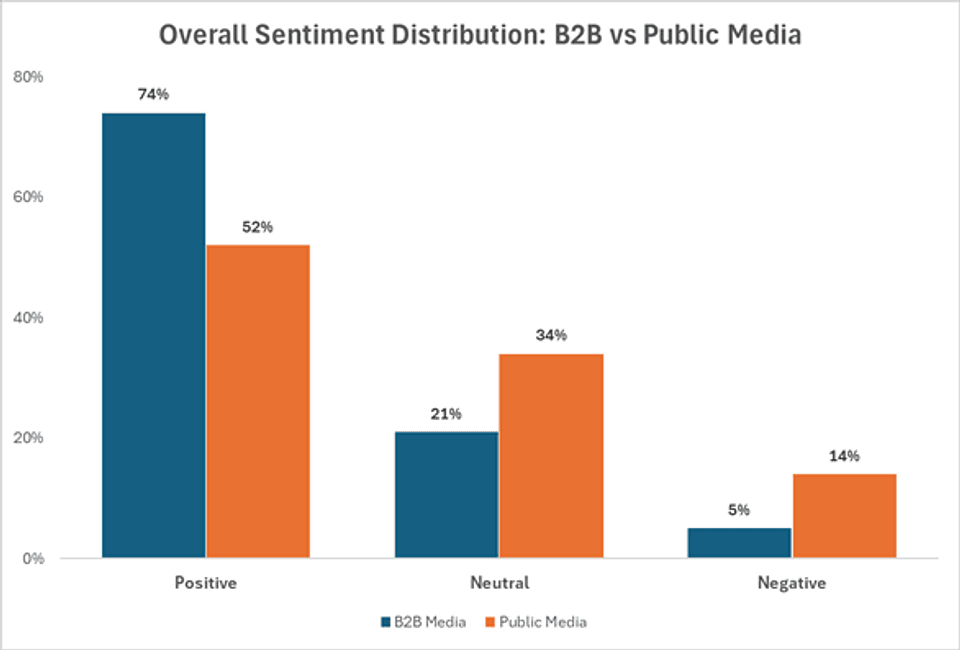After a hectic period of electioneering across the world last year, as various administrations get down to work the world waits with bated breath to see what 2025 will bring. One perhaps controversial prediction I will hazard is that amid an array of hugely complicated global problems, 2025 will be the year public perceptions of expertise start to improve again.
This might sound like an easy guess to make, since these perceptions seem to be at a nadir. The Edelman Trust Barometer (as I’ve written before, one of the best pieces of thought leadership around) has documented a fall-off in public trust in institutions, experts and particularly scientists for many years, a trend accelerated by the pandemic.
Having spent my career seeking out people who know what they’re talking about to interview, the popular antipathy towards experts was something I never really grasped - other than as a reflexive dislike of authority or tech-bro utopianism. It’s also highly selective: few people clamour to have amateurs land the 747 they’re strapped into, or demand that the surgeon about to operate on them has minimal experience or qualifications.
Focusing as N/N does on B2B communications, I’m also exposed to and reminded of the importance of informed views on a daily basis. In the B2B world, compared to popular media, trust is founded more directly in providing credible evidence of expertise over softer factors like values and emotions.
Data from our iN/Ntelligence platform confirms there’s a stark difference between B2B and popular perceptions of expertise. Comparing sentiment on the topic of “experts” or “expertise” among major English language news sources shows sentiment among the B2B-focused media tends to be positive much more often than that in more mainstream publications.

Why is this the case? Put simply, B2B clients often prioritise campaigns that tackle complex problems, from supply chain risks, to the effective and ethical use of artificial intelligence. These campaigns need to convince a highly knowledgeable audience they have the skills to solve such problems - and in that context you don’t get very far without claiming, and hopefully demonstrating, superlative knowledge of some kind.
It pays to remember this when producing B2B content: as a perspicacious N/N client often asks, when assessing whether a campaign will hit the mark, “Why should experts hire experts?”
Make it human
Of course an expert audience is likely to trust other experts more than the general public does. But it’s important to bear in mind that the B2B audience is – at least for now - still a human one. That means B2B campaigns can’t ignore the issues that typically undermine trust in expertise, including opacity, condescension and elitism. The best B2B campaigns are clear, straightforward and pitched at the well-informed generalist, rather than overloaded with specialist jargon for the sake of it. They are also reinforced with appeals to ‘softer’ factors than reason alone, such as demonstrable commitments to accountability and probity, and often leavened with a touch of humour too.
If Edelman is right that “science has a communications problem that can be improved with better messaging,” as their 2024 report recommends, this advice applies more broadly whenever expertise is used in general to reinforce credibility.
‘Soft’ factors are even more important when talking about innovation, especially when the rollout of new technology has broad implications for emotive issues like employment, privacy and ethics, and is inevitably racing ahead of the regulatory environment – as with AI in recent years. Without considering things like transparency in their communications, experts will continue to be distrusted in many arenas.
So against this backdrop, why do I think 2025 will see an improvement in perceptions of experts? Partly there will be a natural reversion to the mean, as people grasp that the scale of the problems facing us outpaces the ability of amateurs to deal with them. And as fatigue with misinformation continues to rise, people will put greater store in credible sources either with superior knowledge, extensive practical experience, or both.
I also admit to good old-fashioned optimism as the new year gets underway. It’s true that improvement depends on experts learning from their prior communication failures and striving to do better – but these are two ambitions everyone should have on their list of resolutions for 2025.
World-class communications strategy and execution
Contact us to get started